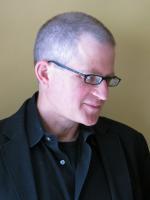- About YDS
- Admissions & Aid
- Application Instructions and Requirements
- Fall Open House for Prospective Students
- Office of Admissions
- Degree Programs and Certificates
- Non-Degree Programs
- Tuition and Financial Aid
- Visit and Connect
- Request Information
- International Applicants
- Accreditation and Educational Effectiveness
- YDS Bulletin & Policies
- Academics
- Life at YDS
- Faculty & Research
You are here
Christian Wiman

B. A., English Literature, Washington and Lee University
Christian Wiman is the author, editor, or translator of fourteen books, including Zero at the Bone: Fifty Entries Against Despair (FSG, 2024), Hammer is the Prayer: Selected Poems (FSG, 2016), My Bright Abyss: Meditation of a Modern Believer (FSG, 2013), and Stolen Air: Selected Poems of Osip Mandelstam (HarperCollins/Ecco, 2012). Of his work as a whole, Marilynne Robinson writes, “His poetry and scholarship have a purifying urgency that is rare in this world. This puts him at the very source of theology, and enables him to say new things in timeless language, so that the reader’s surprise and assent are one and the same.” Mr. Wiman has been a Jones Lecturer in Poetry at Stanford and a visiting assistant professor of English at Northwestern, and for three years he served as Visiting Scholar at Lynchburg College in Virginia. From 2003 until 2013 he was the editor of Poetry magazine, the premiere magazine for poetry in the English-speaking world. During that time the magazine’s circulation tripled, and it garnered two National Magazine Awards from the American Society of Magazine Editors. For the magazine’s centennial year, Mr. Wiman edited, with Don Share, The Open Door: One Hundred Poems, One Hundred Years of Poetry Magazine (University of Chicago Press, 2012). Mr. Wiman has written for the New Yorker, Harper’s, the New York Times Book Review, the Atlantic Monthly, and numerous other publications. He is a former Guggenheim Fellow and holds two honorary doctorates. His particular interests include modern poetry, the language of faith, “accidental” theology (that is, theology conducted by unexpected means), and what it means to be a Christian intellectual in a secular culture.